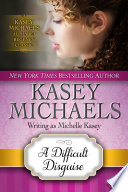Social interactions in the Regency were typically governed by etiquette, or a standard practice of socializing. A System of Etiquette (1804) has some helpful hints about “inviting and interchanging civilities” when it comes to the call:
Many of these traditions continued well into the Victorian era, as evident by George Gaskell’s Compendium of Forms, Education, Social, Legal and Commercial (1881):
There were more rules:
From Dunbar’s Complete Handbook of Etiquette (1834)
- “When returning visits of ceremony, you may, without impoliteness, leave your card at the door without going in. Do not, however, fail to inquire if the family be well.”
- “Visits of condolence ar paid within the week after the event which occasions them. Personal visits of this kind are made only be relations and very intimate friends…”
- “A call should invariably be made within a week upon friends or acquaintances at whose house you have dined, or from whom you have received an initiation to dine.”
- “Some ladies only receive visitors on a state afternoon in each week; but this is a somewhat pretentious custom, only to be justified by the exigencies of a very loft position.”
- “Umbrellas and overcoats should always be left in the hall.”
- “When a gentleman makes a morning call, he should never leave his hat or riding-whip in the hall, but should take both in the room. To do otherwise would be to make himself too much at home. The hat should never be laid on a table, pianoforte, or an article of furniture, but must be held properly in the hand. If you are compelled to lay it aside, put it on the floor.”
- “Never take favorite dogs into a drawing room when you make a morning call.”
- “If you do not keep a close carriage, you should never pay visits of ceremony in wet weather.”
- “A gentleman ought to rise upon the entrance of ladies. A lady does not rise. It is not permissible to leave one’s chair in order to get nearer the fire.”
- “an introduction is only followed by a bow, unless the persons…are relations or very old friends” the hostess wants to make particularly known, “In this case you give your hand.”
- “A man has no right to take a lady’s hand till it is offered.”
- “Two ladies shake hands gently and softly.”
- “A lady gives her hand to a gentleman but does not shake his hand in return.”
- “If other visitors are announced and you have already remained as long as courtesy requires, wait till they are seated then take leave of your hostess; bow politely to the newly arrived guests; and retire.”
For more information and a good reference list: https://englishhistoryauthors.blogspot.com/2013/08/morning-calls-and-formal-visits.html









